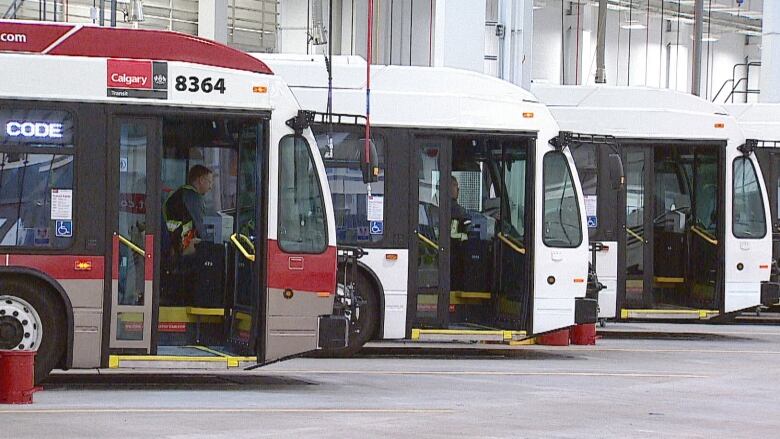Why the NDP's free transit plan could leave Calgarians with lower emissions but higher taxes
JournalistHadeel Abdel-Nabidiscusses pros and cons of NDP-endorsed idea

With monthly passes exceeding $100 for adults, public transit isn't cheap in Calgary.
It's also arguable that the cost of public transit provides Calgarians with less incentive to ditch their cars for a greener lifestyle.
But if Calgarians could use public transit for free, how would it change commutinghabitsand impact the environment?
If elected, the federal NDP haspledged to help cities work toward fare-free public transit in an effort to reduce emissions.
In a recent article for The Sprawl, a localonline journal, freelance journalistHadeel Abdel-Nabiexplored the potential pros and cons of fare-free transit in Calgary.
On Friday, Abdel-Nabi discussed her analysis with guest host Rob Brown on theCalgary Eyeopener.
The following has been edited for clarity and length.
Q: Let's start with the arguments in favour of having free-fare transit.
A: The clearest argument, I would say, is in favour of climate change. If you get more cars off of the road, [there are] less emissions, and I think it makes the city a little bit more accessible.
Q: Hasfree transit been used in other cities around the world?
A: Yeah. Thecapital city of Estonia it's called Tallinn introduced a free transit system back in 2013. It's not entirely freebecause it's built into their tax burden, and residents get a green card, which then opens up the transit system for them. So that's the buses, the trains everything is accessible for that year.
Q: Based on your research for this piece, do you think that model could work here in Calgary?
A: Tallinn is quite a bit smaller than Calgary; it's a city of less than half a million, which is substantially less than what Calgary is. So, [there would be]challenges that they didn't have to really think about with a smaller city.
Calgary is known to sort of throw our support and money behind things that we supposedly deem important to the city,like the Olympic pitch and when we courted Amazon. So if we think something is important enough, I don't see any reason why it couldn't be a step.
Q: In your article you also wrote about free transit fares in Portland. How did it work [there]?
A: In Portland, it was similar to our free-fare zone downtown. They had the "Fareless Square," and there was a section of the city downtown that was free for transit users, andwas also built into their tax burden.
The result of it was that they reduced carbon monoxide emissions entirely in the downtown area. So it did what they wanted it to do, but they did have some drawbacks.
Q: You keep mentioning this being needed to be built into the tax burden. How would we pay for this in the city of Calgary?
A: I looked into things like property taxes, fees for parking there are a number of ways that we could find the money for it. We usually find the money for something if we want it bad enough.
Q: So jacking up property taxesand increasing fees for parking fines, or just parking in general?
A: Parking in general. Calgary has been built as a car city. Aresponse to the articlewaspeople were mentioning that if we add these charges to car drivers, if we build that toward transit, if we build that incentive, there's definitely a way it can work. We can always find the money; it's just a matter of someone caring enough to look for it.
Q: Would Calgarians sign off on a property tax increase for something like this, realistically?
A: I would like to hope that there are a number of Calgarians that care enough about the environment and enough about making this city accessible that that would be something we care about.
Q: The NDP is promising to support cities that implement free-fare public transit. What about the other federal parties?
A: The Conservatives said that they would reintroduce their transit tax credits. So that was what Harper had back in 2006, and then that was later repealed by the Liberals, because they deemed it ineffective. So they are bringing that back, potentially.
The Green Partyhaven't mentioned anything specific around free-fare transit, but they have suggested a hub and spoke system with electric buses and trains.
The Liberals were suggesting nothing around transit, specifically, but having some funding available to build infrastructure for pedestrians and for cyclists. So that's where theirenvironmental ideas come through, but nothing specifically for transit.
With files from theCalgary Eyeopener.












_(720p).jpg)


 OFFICIAL HD MUSIC VIDEO.jpg)
.jpg)



























































































